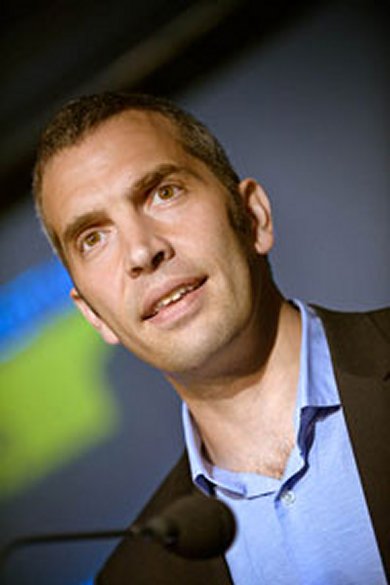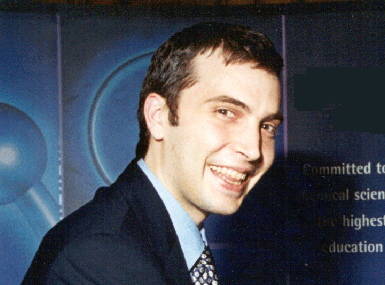Each month, ChemViews asks a chemist at the beginning of their career (Ben Davis, below) and an established chemist (Koop Lammertsma, VU University, the Netherlands) to give their opinions on the future of chemistry.
Interview
Prof. Benjamin Davis, University of Oxford, UK
1. What do you think is the biggest challenge facing the world?
Inequity – injustice and unfairness in the world is not a new thing, but such differences have always been (almost always) effectively suppressed. Whilst it is clear that as a planet we are consuming the last of our resources, it will not be the lack of resource that will rear its head first, but the access to that limited resource.
2. What role can chemistry play?
Chemistry’s role will be to increase access and hence increase fairness. The key issues will surround: energy, water, endangered (rare/threatened) elements, and new effective organic feedstocks.
To pick just two examples:
- The honesty of science will free us to recognize truly viable solutions to, for example, energy generation. In this case, the development of artificial photosynthesis may have much greater value to society than notions of ‘biofuels’.
- In 20 years, we will have not only started to run out of the current feedstocks for all major pharmaceutical and material needs, but we will have needed to teach a new type of organic chemistry that uses new starting materials and approaches.
3. Which trends would you like to see develop? (What are your hopes for the future?)
A greater emphasis on bigger goals.
It puzzles me why some chemists do not see chemistry as the big science. The questions we have to wrestle with are superb:
- Prebiotic chemistry
- Models for life-like systems
- In vivo chemistry = real systems biology
- How we can build a new organic chemistry from abundant C6 and C1 (glucose and CO2) synthesis/chains?
4. Which trends would you like to see disappear? (What are your fears for the future?)
Pharmaceutical hegemony and journal proliferation.
5. Which invention(s) would you like to live to see?
Big balloon swimming pool (© T. S. Heisel)
6. What would you like to be doing ten years from now?
Still trying to make a proper difference, no matter how small it might seem at the time.
7. What advice would you give to up-and-coming scientists? (What was the best advice you have ever been given?)
Passion and belief in what you do; only that way will you feel lucky to do what you do.
The best advice I was ever given was: “You should smile more, young man.” (B. Clough)
Personal Record
Prof Benjamin G. Davis
Professor of Chemistry, Fellow and Tutor in Organic Chemistry, Pembroke College, Oxford.
Ben Davis got his B.A. (1993) and D.Phil. (1996) from the University of Oxford, under the supervision of Professor George Fleet. He spent two years as a postdoctoral fellow in the laboratory of Professor Bryan Jones at the University of Toronto. In 2001 he moved from the University of Durham to the Dyson Perrins Laboratory, University of Oxford, and received a fellowship at Pembroke College, Oxford.
Research interests: chemical biology with an emphasis on carbohydrates and proteins.
In particular:
- synthesis and methodology,
- inhibitor design,
- protein engineering,
- drug delivery,
- molecular modeling,
- molecular biology, and
- glycoscience.




